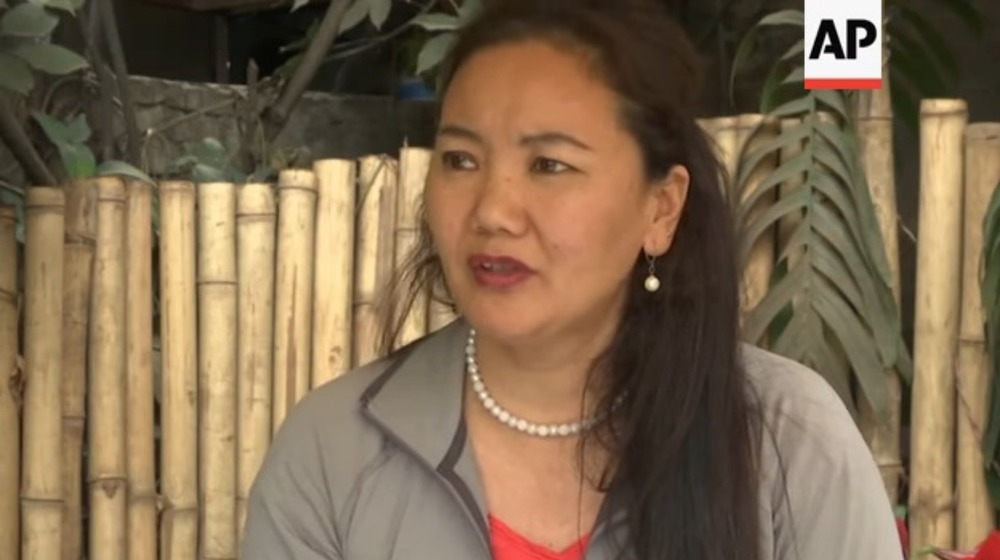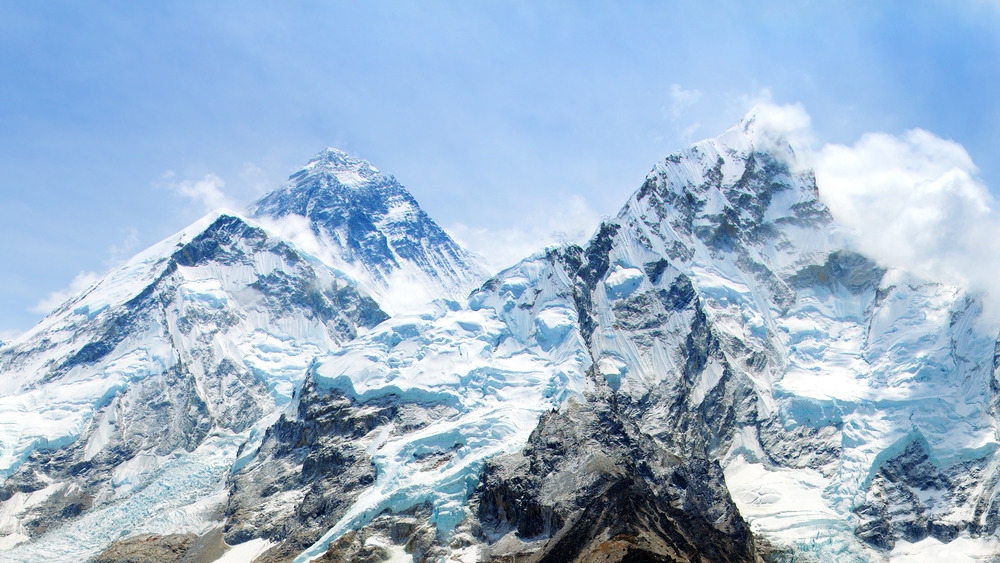The Truth About Lhakpa Sherpa
Mount Everest is the tallest mountain in the world at over 29,000 feet height. Climbing Everest is an incredibly prestigious and dangerous undertaking that, per the University of Washington, kills around one percent of the over 500 climbers who attempt to reach the summit each year.
Achieving the summit just once would be more than enough for most people. When Lhakpa Sherpa of West Hartford, Connecticut climbed Everest for the first time in 2000, she led the Nepali Women Millennium Expedition and set a world record, as reported by Everest News, becoming the first Nepali woman to reach the summit of Everest and return alive. Since then, Sherpa, who was born and raised in Nepal, has climbed Mount Everest nine times and holds the world record for most Everest summits by a woman. She is a gifted athlete, and yet, per an interview with the Guardian, has none of the corporate sponsorships that many athletes rely on for money, training, and gear.
Sherpa is a single mother of three children. She works for minimum wage as a dishwasher at Whole Foods and walks to work because she can't afford a car. When she leaves her hourly jobs to go on climbs, which also include working at 7-Eleven and cleaning houses, she risks homelessness. The Guardian notes that as a middle-aged, immigrant woman of color, Sherpa isn't traditionally marketable in the ways of most sponsored athletes. This is perhaps short-sighted on the part of brands, as her "words are laced with intelligence and humor, and her passion for climbing is evident."
A world record holder with little support
Sherpa, about 45 years old, was born in the Balakharka, Nepal, one of 11 children. She isn't sure of her exact age; she was born at home and received no birth certificate, reports Rock and Ice. Her childhood home had no electricity. Since she was a girl, she wasn't allowed to attend school. Climbing Mount Everest is a bit of a family business; one of her brothers runs an expedition company, another has climbed Everest "10 or 11 times," and her sister became the youngest person to ever reach the summit of Everest in 2003 at the age of 15 during a Sherpa family climb, per Everest News. Sherpa explained to the Guardian that her family does the dangerous job of leading people on Everest climbs "[b]ecause the alternative is to make money growing potatoes."
Sherpa can't afford to train full time because she works so many hours. Unlike most elite athletes, she has neither trainers nor nutritionists, and uses older gear, including an oxygen mask that's 50 years old. She was once married to a fellow climber whom she met on Everest, but their relationship turned violent; he notoriously hit her in front of other people while they were on Mount Everest in 2004. They eventually divorced. The Guardian notes that Sherpa "undoubtedly lost good climbing years to adversity, and yet her commitment to climbing persists." Sherpa calls climbing "my way out of washing dishes" as well as "the way to make a better life for the girls."

